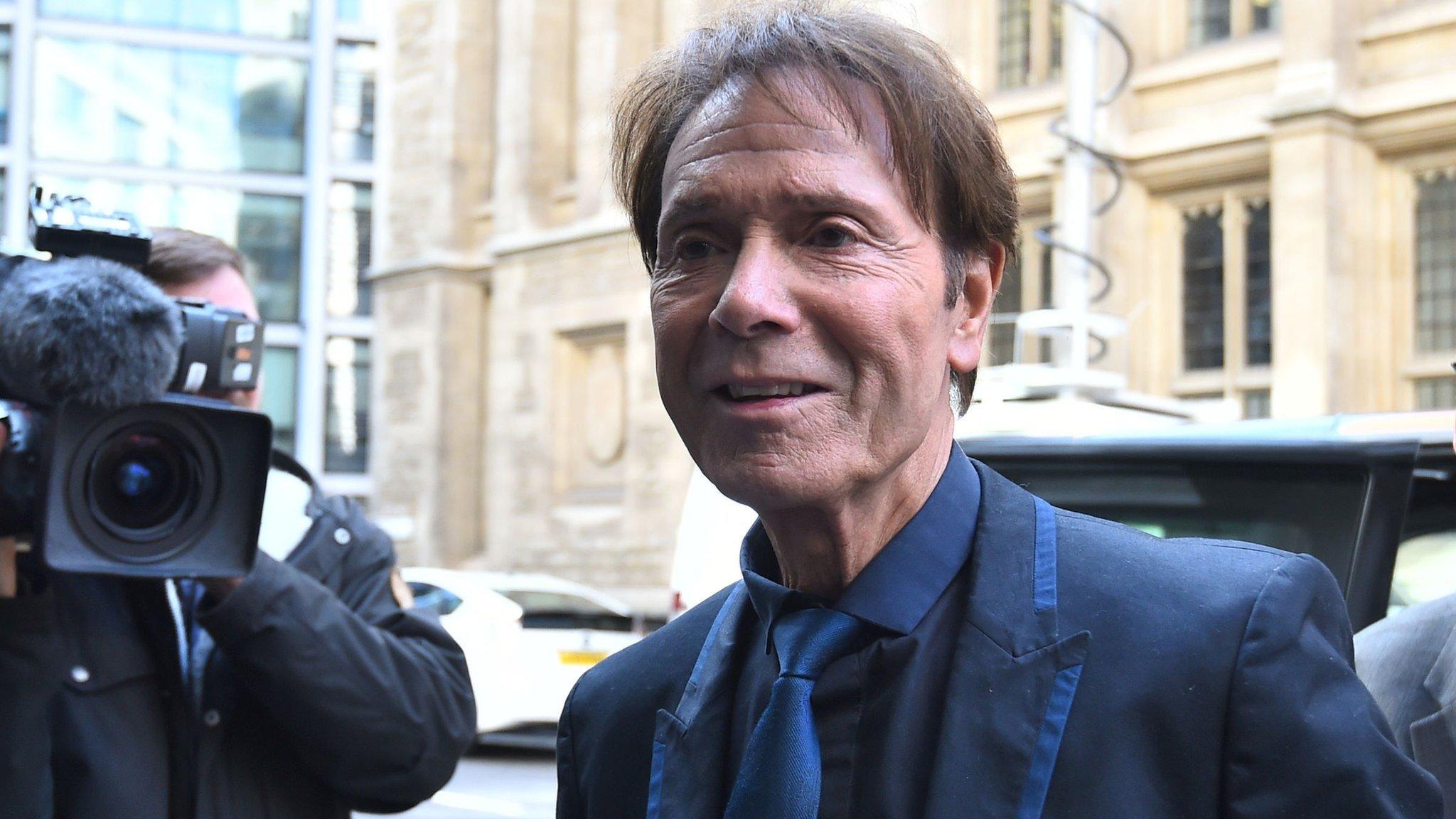Cliff Richard privacy case: Bosses made decisions, says BBC reporter
- Published
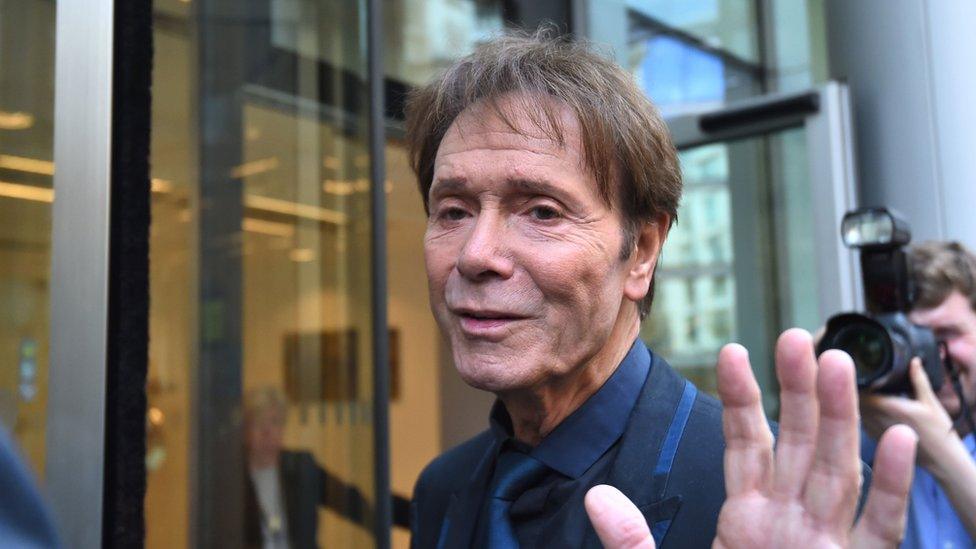
Sir Cliff says he suffered "profound and long-lasting damage" from the BBC's coverage
The BBC journalist who broke the story about the police investigation into Sir Cliff Richard has said his bosses made decisions over the singer's privacy.
Dan Johnson told the High Court that he was "aware" of privacy issues around the story.
But he said those matters were "dealt with by people higher up".
Sir Cliff, 77, is suing the BBC after it named him and broadcast helicopter footage of police searching his flat in August 2014.
It was part of a report by the BBC on South Yorkshire Police's sexual assault inquiry into the singer.
Sir Cliff was not arrested or charged.
The singer claims he suffered "profound and long-lasting damage" from the coverage. He is suing the BBC over the misuse of private information and breaking data protection rules.
The BBC disputes his allegations. It says the BBC report on the police inquiry was in the public interest.
Lawyers for the corporation say its coverage was accurate and in good faith, and journalists had respected Sir Cliff's "presumption of innocence".
On Thursday, the court heard again from Mr Johnson for day six of the trial.
He told Mr Justice Mann: "Of course I am aware there are privacy issues around the story.
"I knew they were being taken into consideration by editors.
"They were being dealt with by people higher up."
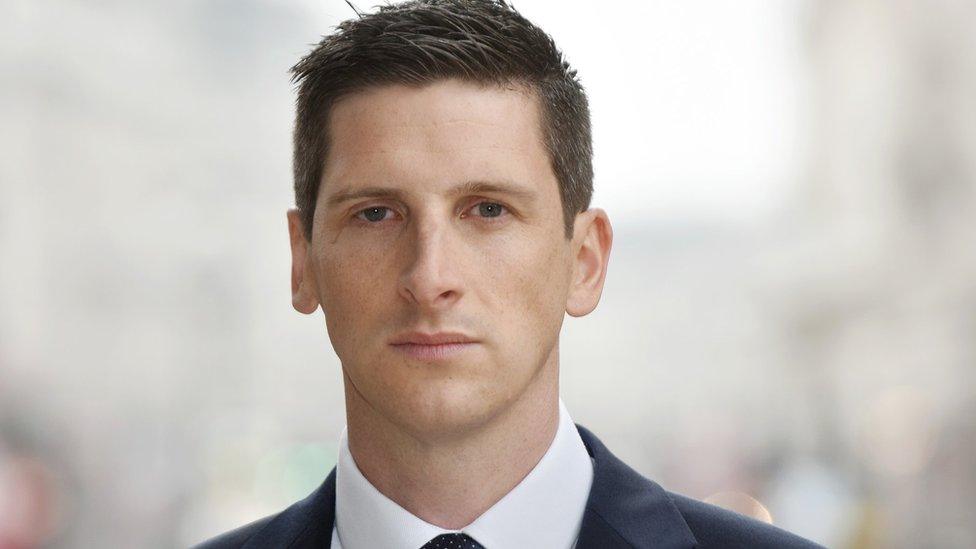
Dan Johnson defended his work on the Sir Cliff Richard story
The BBC reporter said he stuck to instructions given to him by one of his editors.
The plan was to record as much footage from the police search as possible to learn if there had been an arrest or items removed.
Any privacy issues around broadcasting footage from the helicopter was considered by the team on the story who could see the full feed, Mr Johnson said.
'A right to report'
The allegation that Sir Cliff had sexually assaulted a boy under the age of 16 in Sheffield in 1985 was passed to South Yorkshire Police by the Metropolitan Police.
Sir Cliff's lawyer accused Mr Johnson of failing to consider whether the sexual assault complaint made against the star was unfounded and whether the broadcast could damage an innocent man.
But Mr Johnson replied that he was aware of the possibility that the complaint to the police could be false.
Challenged again by Sir Cliff's lawyer Justin Rushbrooke that the complaint looked flimsy, Mr Johnson said he passed the facts on to his bosses to make a judgement.
He added that he wanted to talk to the complainant to see if his account made sense.
Mr Johnson told the court: "The story was that he was being investigated, that the police were searching his flat."
Mr Johnson added: "Of course it could be damaging but that doesn't mean that we don't have a right to report that, a right to tell people what the police are doing."
'I could not ignore' story
Mr Johnson denied there was a disproportionate intrusion and said it was a story he could not ignore.
"This was a story involving allegations of a very serious nature against a figure of the highest profile, against the backdrop of a number of allegations being made against other celebrities - some of whom had been jailed," he told the court.
He said in other cases victims had come forward after a celebrity's arrest and charges had been made public.
Mr Johnson said: "I felt this was a story I could not ignore and my responsibility was to check the facts as best as I could and then hand the story on to my editors."
Mr Johnson said it was a strange 24 hours after the story broke, adding that he was praised on the scoop by his editors.
He also denied making any deal with South Yorkshire Police, but said that there was an acceptance "that if I kept quiet, more information would be forthcoming about the search - date, time, location".
Sir Cliff, wearing a grey jacket and striped shirt, sat near the back of the courtroom and listened to Mr Johnson's evidence.
- Published18 April 2018
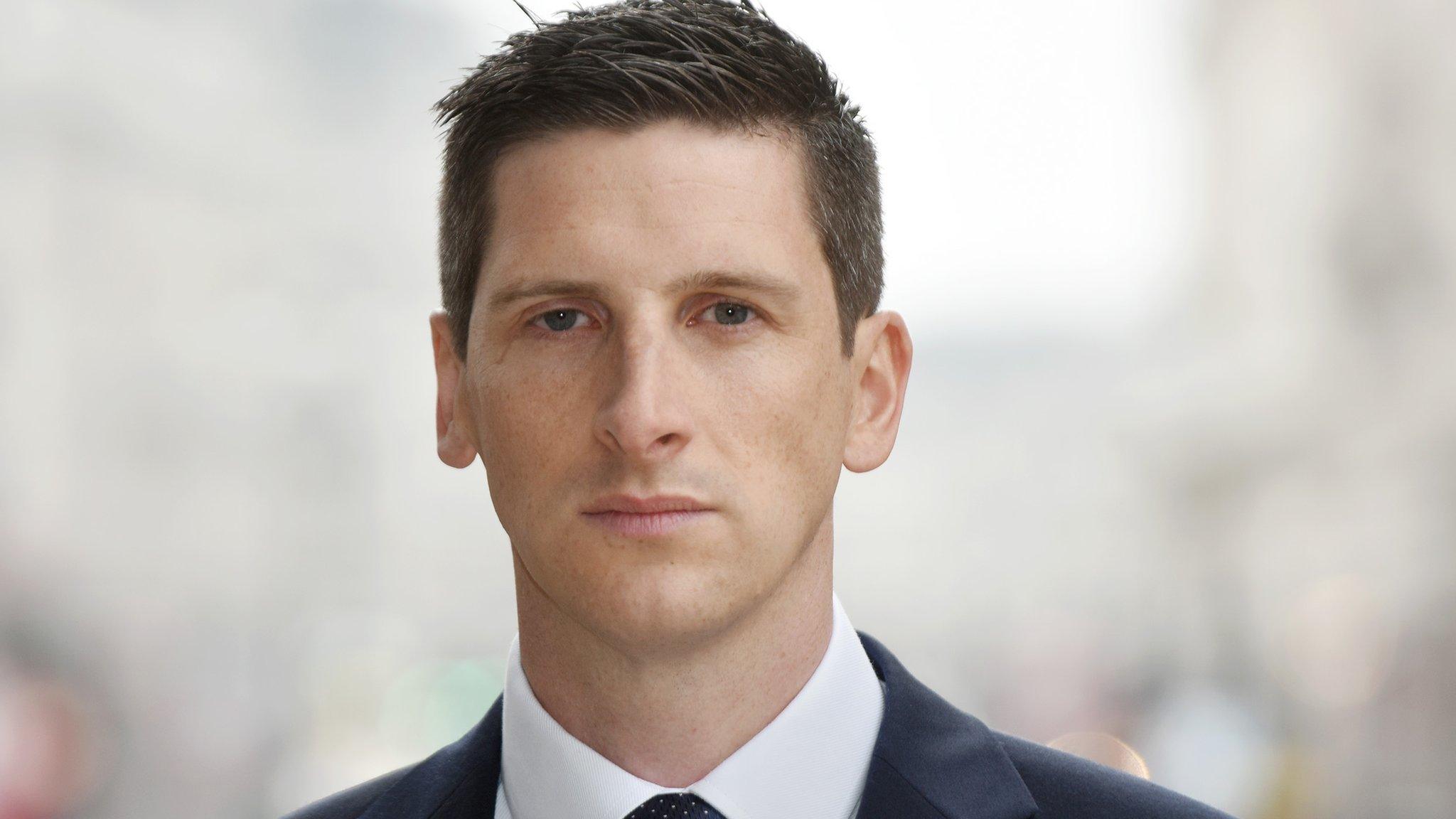
- Published17 April 2018
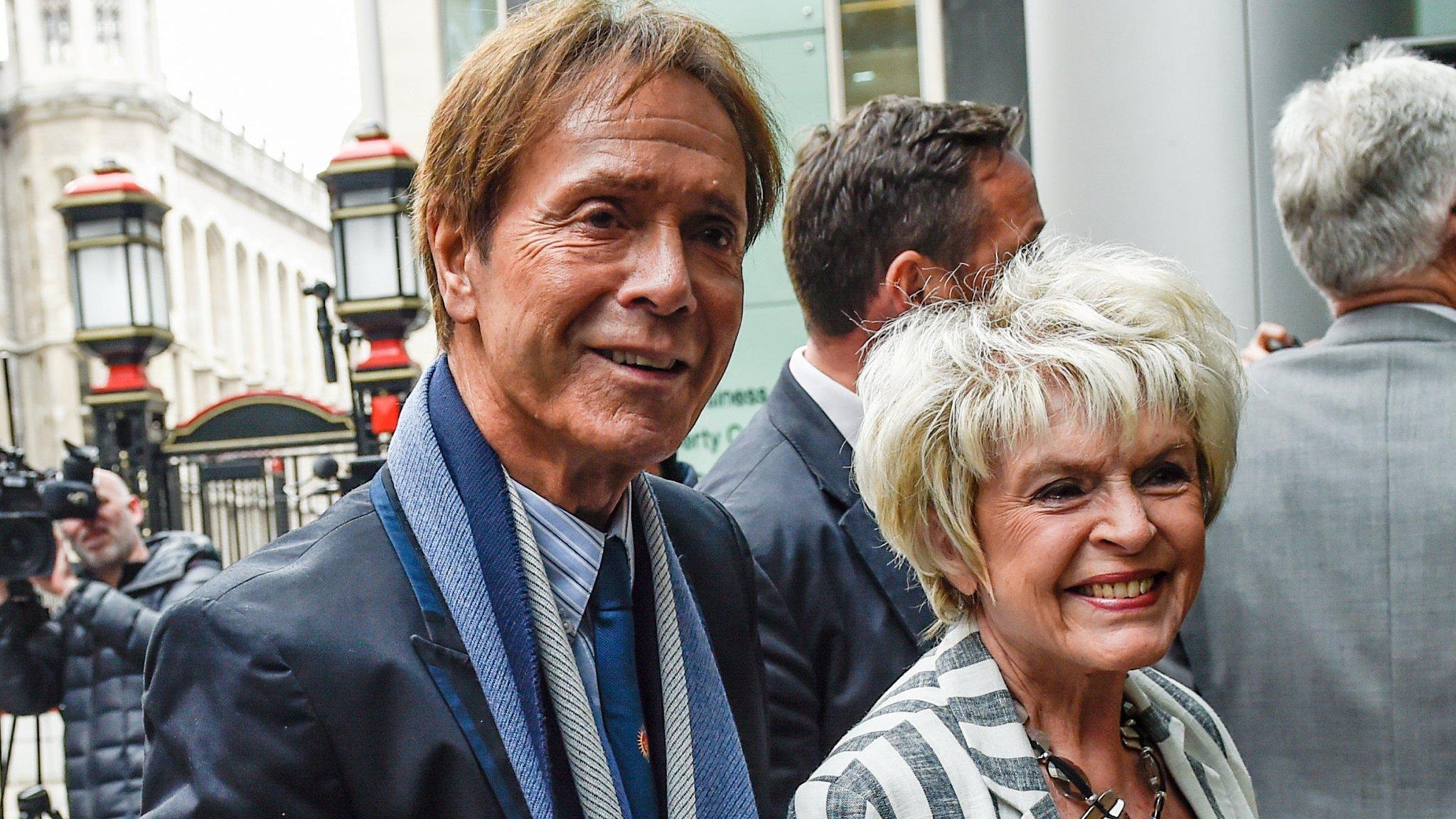
- Published18 April 2018
